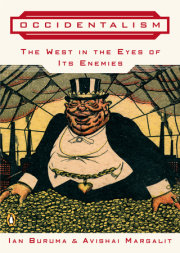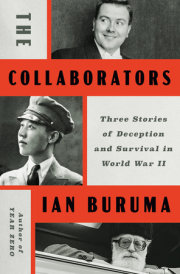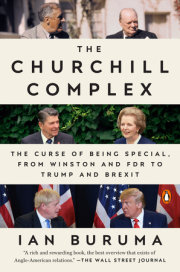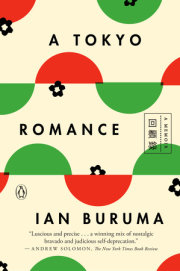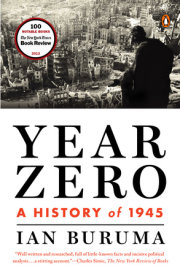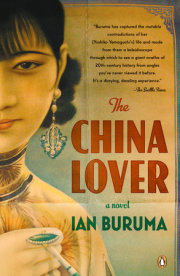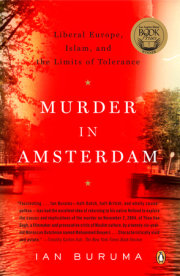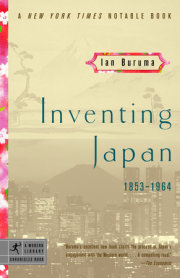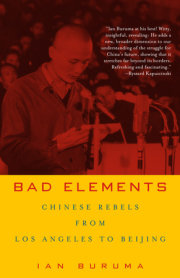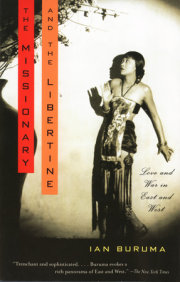In July 1942, just six months after the Japanese bombed the American fleet in Pearl Harbor and overwhelmed the Western powers in Southeast Asia, a number of distinguished Japanese scholars and intellectuals gathered for a conference in Kyoto. Some were literati of the so-called Romantic group; others were philosophers of the Buddhist/ Hegelian Kyoto school. Their topic of discussion was how to “overcome the modern.”
It was a time of nationalist zeal, and the intellectuals who attended the conference were all nationalists in one way or another; but oddly enough the war itself, in China, Hawaii, or Southeast Asia, was barely mentioned. At least one of the members, Hayashi Fusao, a former- Marxist-turned-ardent-nationalist, later wrote that the assault on the West had filled him with jubilation. Even though he was in freezing Manchuria when he heard the news, it felt as though dark clouds had lifted to reveal a clear summer sky. No doubt similar emotions came over many of his colleagues, but war propaganda was not the ostensible point of the conference. These men, the literary romantics as much as the philosophers, had been interested in overcoming the modern long before the attack on Pearl Harbor. Their conclusions, to the extent that they had enough coherence to be politically useful, lent themselves to propaganda for a new Asian order under Japanese leadership, but the intellectuals would have been horrified to be called propagandists. They were thinkers, not hacks.
“The modern” is in any case a slippery concept, but in Kyoto in 1942, as in Kabul or Karachi in 2001, it meant the West. But the West is almost as elusive as the modern. Japanese intellectuals had strong feelings about what they were up against, but had some difficulty defining exactly what that was. Westernization, one opined, was like a disease that had infected the Japanese spirit. The “modern thing,” said another, was a “European thing.” There was much talk about unhealthy specialization in knowledge, which had splintered the wholeness of Oriental spiritual culture. Science was to blame. And so were capitalism, and the absorption of modern technology, and individual freedoms, and democracy. All these had to be “overcome.” A leading film critic, Tsumura Hideo, excoriated Hollywood movies and praised the documentary films of Leni Riefenstahl about Nazi rallies, which were more in tune with his ideas on how to forge a healthy national community. In his view, the war against the West was a war against the “poisonous materialist civilization” built on Jewish financial capitalist power. All agreed that culture—that is, traditional Japanese culture—was spiritual and profound, whereas modern Western civilization was shallow, rootless, and destructive of creative power. The West, particularly the United States, was coldly mechanical. A wholistic, traditional, classical Orient, united under divine Japanese imperial rule, would restore the warm organic community to spiritual health. As one of the participants put it, the struggle was between Japanese blood and Western intellect.
The West, to Asians at that time, and to some extent still today, also meant colonialism. Since the middle of the nineteenth century, when China was humiliated in the Opium Wars, educated Japanese realized that national survival depended on careful study and emulation of Western ideas and technology. Never had a great nation embarked on such a radical transformation as Japan between the 1850s and 1910s. The main slogan of the Meiji Period (1868–1912) was “Bunmei Kaika,” or “Civilization and Enlightenment”; that is, Western civilization and enlightenment. Everything Western, from natural science to literary realism, was hungrily soaked up by Japanese intellectuals. European dress, Prussian constitutional law, British naval strategies, German philosophy, American cinema, French architecture, and much, much more were taken over and adapted. The modern, then, referred to that “European thing,” but also to the Japanese effort to make it their own.
The transformation paid off handsomely. Japan remained uncolonized and quickly became a great power that managed, in 1905, to defeat Russia in a thoroughly modern war. Japan’s industrial revolution did not come long after Germany’s, with equally dislocating effects. Large numbers of impoverished country people moved into the cities, where conditions could be cruel. The army was a brutal refuge for rural young men, and their sisters were sometimes sold to big city brothels. But economic problems aside, there was another reason many Japanese intellectuals sought to undo the wholesale westernization of the late nineteenth century. It was as though Japan suffered from intellectual indigestion. Western civilization had been swallowed too fast. And that is partly why that group of literati gathered in Kyoto to discuss ways of reversing history, overcoming the West, and returning to an idealized spiritual past.
Copyright © 2005 by Ian Buruma and Avishai Margalit. All rights reserved. No part of this excerpt may be reproduced or reprinted without permission in writing from the publisher.


